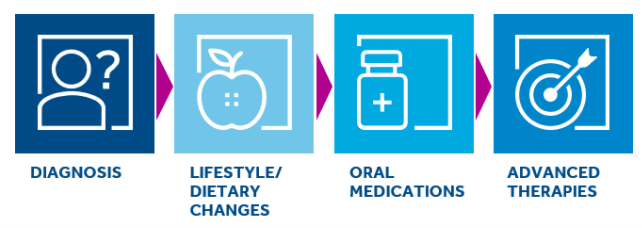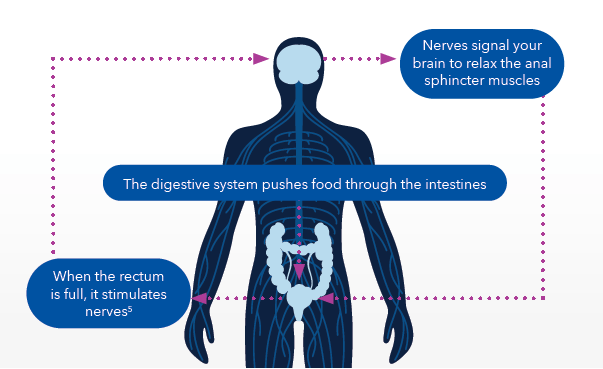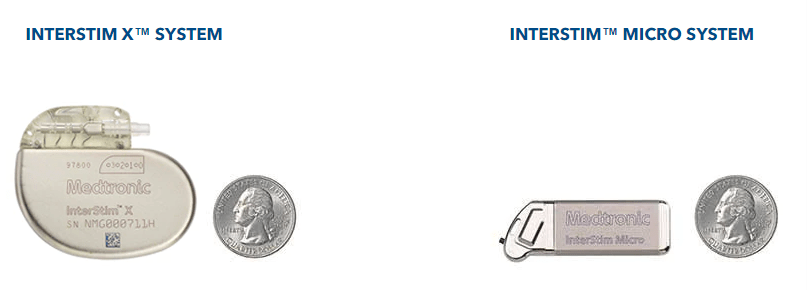Bowel control problems are extremely common, but they are not normal. If you suffer from bowel control issues, you know how much they can interrupt your life. It’s time to speak up and get back to living your life. Set up a consultation today at Bethany Medical with Incontinence Specialist, Dr. Shabana Shahid.
Find more information below on bowel incontinence treatment options, FAQs, patient testimonials, and other resources.
Do the following sound familiar?
- Frequent bowel accidents
- Monitoring what and how much you eat
- Using pads or protective garments
- Planning activities around the bathroom
If you’d like more information on treatment options for fecal incontinence or to request a consultation with Dr. Shabana Shahid, please fill out the information below.
One of our Gastroenterology team members will contact you within one business day to schedule an appointment time. Or, you can call (336) 289-2855 to schedule an appointment.
Fecal Incontinence Facts
- 1 in 12 adults in the US has fecal incontinence (FI).1,2
- 20 million adults in the US are affected by FI.1,2
Fecal Incontinence (FI) is a treatable condition. It’s not a normal part of aging. And you shouldn’t have to deal with it on your own.
Learn more at www.controlleaks.com/bowel
1. United States Quick Facts. United States Census Bureau Web site. Available at: https://www.census.gov/quickfacts/table/ PST045215/00. Accessed July 19, 2016.
2. Whitehead WE, Borrud L, Goode PS, et al. Fecal Incontinence in US adults: epidemiology and risk factors. Gastroenterology. 2009;137(2):512-517.
Information on this site should not be used as a substitute for talking with your doctor. Always talk with your doctor about diagnosis and treatment information.
Treatment Options
There are many ways to manage bowel control problems. Remember, if conservative treatments don’t deliver the results you need, you have more options.
Lifestyle Changes
Conservative treatments can help some people but may not work very well (or at all) for others. All of these are relatively simple behavioral changes that you may already be doing.
- Dietary modification: changes may include adjusting fiber intake or eliminating troublesome foods.
- Bowel retraining: also called biofeedback, this aims to improve bowel sensation, coordination, and strength.
- Medication: anti-diarrheal medication may provide some relief.
Oral Medications
When lifestyle changes fail to deliver the relief results you want, oral medications are the next step. These medications can help control symptoms but may cause other issues.
These medications need to be taken daily. Some side effects can be unpleasant, such as dizziness, drowsiness, tiredness or constipation. Other side effects are more serious. Even more important, these medications don’t always work. In one survey, 72% of people said they stopped taking their medication after just six months.1
1. Yeaw J, Benner J, Walt JG et al. Comparing adherence and persistence across 6 chronic medication classes. J Manag Care Pharm. 2009:15(9): 724-736.
Advanced Therapies
If conservative treatments don’t deliver the results you want, you have more options such as Medtronic Bowel Control Therapy. Learn more below!
Medtronic Bowel Control Therapy Delivered by the InterStim™ System
Evidence suggests that breakdowns in the bowel-brain communication pathway may be a root cause of chronic fecal incontinence (FI).1 That’s why conventional treatments may not produce the results you want — they don’t directly target this miscommunication.
Unlike conventional treatments, the Medtronic InterStim™ systems gently stimulate the sacral nerves in your pelvic area that control your bowel. This may help restore* bowel-brain communication and reduce your symptoms.
 Implanting an InterStim™ system has risks similar to any surgical procedure, including swelling, bruising, bleeding, and infection. Set up a consultation to talk about ways to minimize these risks at Bethany Medical with Dr. Shabana Shahid, our incontinence specialist (shown right). Complications can occur with the evaluation, including the movement of the wire, technical problems with the device, and some temporary pain. Dr. Shahid will provide you with the information regarding how to operate the test device, and inform you of other precautions related to the evaluation and activity restrictions.
Implanting an InterStim™ system has risks similar to any surgical procedure, including swelling, bruising, bleeding, and infection. Set up a consultation to talk about ways to minimize these risks at Bethany Medical with Dr. Shabana Shahid, our incontinence specialist (shown right). Complications can occur with the evaluation, including the movement of the wire, technical problems with the device, and some temporary pain. Dr. Shahid will provide you with the information regarding how to operate the test device, and inform you of other precautions related to the evaluation and activity restrictions.
The relief you’ve been waiting for
When more conservative treatments fail, Medtronic bowel control therapy delivered by the InterStim™ systems can help. This therapy is simple and discreet, and it delivers the kind of relief that lets you enjoy the activities you love without a second thought.
- Targets the nerves that control your bowel to help it function normally again
- Clinically proven to stop or greatly reduce bowel accidents2
- Significantly improved quality of life (lifestyle, ability to cope, embarrassment, and depression)2
- Lets you evaluate if it works before you and your doctor decide
- Allows you to get full-body MRI scans if you need them‡
- Hundreds of thousands of people have experienced relief* with this safe, FDA-approved and minimally invasive therapy†
The choice is yours
Medtronic bowel control therapy delivered by the InterStim™ systems offers recharge-free and rechargeable options, so you can choose the right one for your lifestyle.
- The recharge-free InterStim X™ system may be best for most people; it’s convenient and low maintenance.
- The rechargeable InterStim™ Micro system is smaller, lasts longer, and requires regular recharging sessions.
Image above: quarter shown for size comparison
Proven Results
Medtronic bowel control therapy delivered by the InterStim™ systems provides life-changing relief.
- 89% of people using it experienced long-term success2¶
- Delivers significant and lasting improvement for people with FI
The most common adverse events were implant site pain, paresthesia, change in sensation of stimulation, implant site infection, urinary incontinence, neurostimulator battery depletion, diarrhea, pain in extremity, undesirable change in stimulation, buttock pain, and migration of implant.
Is InterStim™ Right for You?
You may be a good candidate for Medtronic Bowel Control Therapy delivered by the InterStim™ systems if:
- You have significant chronic fecal incontinence symptoms
- You’ve tried lifestyle changes and oral medications
- These therapies haven’t given you the relief you want
See if it works for you
Unlike other bowel control treatments, this therapy lets you try it first with an evaluation — like a test run, not a long-term commitment.
- Starts with a short, in-office procedure
- Go about most of your regular activities for 3-14 days
- Track your symptoms to see if they improve
- Talk with your doctor about your results and find out if it’s likely to help you
Complications can occur with the evaluation, including movement of the wire, technical problems with the device, and some temporary pain. Your doctor or nurse will show you how to use the system and inform you of any activity restrictions and other precautions related to the test.
*Defined as a 50% or greater reduction in your troublesome bowel symptoms.
† Data from InterStim™ Sales Analysis. Medtronic, Inc. December 2019.
‡ Under certain conditions. See approved labeling for details. Patients with InterStim™ SureScan MRI leads only.
¶ Success defined as ≥ 50% reduction of episodes per week. This patient group had data at both baseline and the five-year visit. Another analysis reported 69% of people achieved success with Medtronic bowel control therapy. For this patient group, missing data at five years because of a device-related reason was counted as failure or if it was missing for non-device related reasons, the most recent data was carried forward.
Information on this site should not be used as a substitute for talking with your doctor. Always talk with your doctor about diagnosis and treatment information.
FAQs
You can try it before you decide, and it’s reversible if you change your mind later.
It can significantly improve quality of life by reducing your symptoms. It’s proven to work in people who have chronic FI.1
No. It can help some people achieve complete continence, but it’s not a cure. If the neurostimulator is turned off or removed, symptoms can return.
Most people describe it as a tingling, flutter, or vibration in the pelvic area. It should not be painful. Stimulation settings can be adjusted, and sensations will vary from person to person.
Clinical data shows that after five years, people using the InterStim™ system continue to experience significant improvements in quality of life.2 No other SNM system has this long-term data. Your experience may be different. More people rely on Medtronic than any other SNM system to provide this relief.
People with an InterStim™ system can have a full-body MRI scan under certain conditions. Your doctor will determine whether you meet those conditions.
Medicare and many private insurance companies cover this therapy. Talk to your doctor to learn more about your insurance coverage.
1. National Association for Continence. Bowel Health. nafc.org/bowel-incontinence. Accessed June 26, 2017.
2. Hull T, Giese C, Wexner SD, et al. Long-term Durability of Sacral Nerve Stimulation Therapy for Chronic Fecal Incontinence. Dis Colon Rectum. 2013; 56(2):234–45.
Patient Stories
Resources
Record your symptoms to help your doctor understand your condition.
Care Pathway for Bowel Control
Understand all of your treatment options for dealing with bowel control issues.
Starting the conversation can be hard. This guide can help you talk to your doctor.
Medtronic Bowel Control Therapies
Understand your options and decide if a Medtronic Bladder Control Therapy is right for you.




